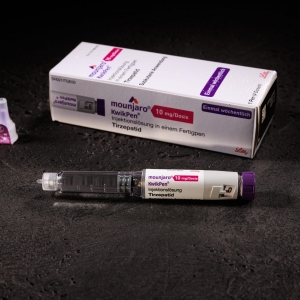Not a lot of people talk about how the changing seasons can mess with your pet’s health.
We all adjust when the seasons shift—switching wardrobes, tweaking routines, maybe complaining a little more about the weather. But our pets? They depend on us to make those adjustments for them. And honestly, there are many cases where a simple heads-up could’ve saved a pet from serious discomfort—or worse.
So whether you’ve got a shaggy snow dog, a sun-loving kitty, or anything in between, here’s the real scoop on seasonal pet health risks... and what you can do to keep your furry sidekick safe and happy all year round.
Summer: Heatstroke Doesn’t Play Around
This one makes most vets at animal hospital VA Beach nervous every single year. Summer rolls in, people get excited for hikes and beach days, and then—bam—someone ends up in the vet’s office with a dog suffering from heatstroke. It happens so fast, and it’s so preventable.
Pets don’t sweat like we do. Dogs mainly cool down by panting, and that’s not very efficient when temps soar. Cats? Even more delicate when it comes to heat.
Watch for: heavy panting, glazed eyes, drooling, vomiting, collapse.
If you even suspect heatstroke, get your pet to a vet immediately. Don't wait. Cool them down on the way with wet towels or air conditioning.
How to prevent it? Easy:
- Don’t walk your dog in the middle of the day. Early morning or late evening is safer.
- Never leave pets in the car. Even “just for a minute.” You know this, but it bears repeating.
- Make shade and water non-negotiables when you're outdoors together.
Pro tip? If you wouldn’t be comfortable barefoot on that pavement, your dog sure won’t be either.
Spring & Fall: When Allergies Attack
You think allergies are just a human thing? Think again. Spring and fall are prime time for pet allergies—especially environmental ones. All that blooming, pollinating, shedding of old leaves... it stirs up a storm.
It’s common for dogs to itch themselves raw and cats sneeze their way through April. It's rough.
Typical signs:
- Red, itchy skin
- Ear infections that keep coming back
- Sneezing or watery eyes
- Licking paws obsessively (that one’s big in dogs)
If it seems like your pet is just uncomfortable all the time during allergy season, it’s not in your head—and it’s not normal. A quick visit to pet hospital Virginia Beach can help sort out whether it’s environmental or food-related, and there are treatments: antihistamines, medicated shampoos, even special diets. You’re not helpless here.
Winter: Cold Weather + Stiff Joints = Grumpy Pets
If your older dog or cat gets a little slow or stiff in the winter, that’s not them just being lazy. Cold weather aggravates arthritis and joint issues—just like it does in people. I’ve watched pets go from sprightly to sluggish as soon as the first frost hits.
They might limp a little after lying down too long, or seem hesitant to jump up on the couch like they used to. And sure, some of that is age, but winter makes it worse.
What helps?
- Keep them warm. Sweaters, heated pet beds, soft blankets—yes, it’s worth it.
- Gentle exercise. Don’t let them sit around too much, but don’t overdo it either.
- Supplements. Omega-3s and glucosamine really can make a difference for joints.
- Ask your vet about anti-inflammatory meds if it’s getting bad.
Bottom line: cold hurts more than just our toes. Be kind to those old bones.
Year-Round But Especially Seasonal: Toxic Trouble
Here’s where things get sneaky.
Spring and summer bring out gardening gear and yard chemicals—think fertilizers, insecticides, weed killers. Pets walk on treated grass, lick their paws later, and boom—GI issues or worse.
Fall and winter? Rat poison, antifreeze, holiday decorations, chocolate, and festive foods all make an appearance. And trust me, they are way more dangerous than most people realize.
Antifreeze, in particular, is deadly to pets—and it smells sweet to them.
Best advice?
- Keep anything toxic locked away—like really away.
- Wipe paws after walks in treated areas.
- Don’t feed pets from your plate at holiday dinners, no matter how cute their eyes are.
- If something seems off, call your vet. Don't wait for it to “pass.”
Final Thoughts
Seasonal changes are sneaky. They creep in with their cozy vibes or sunny days, and before you know it, your pet’s health is being put to the test. But you’ve got this. Pay attention to the little things: their behavior, their energy levels, their appetite. Pets can't speak up, but they show us when something’s off.
Be proactive, stay informed, and when in doubt—just ask your vet. That’s what we’re here for.
Your pet relies on you to keep them safe all year long. And honestly? They’re worth every ounce of effort.






